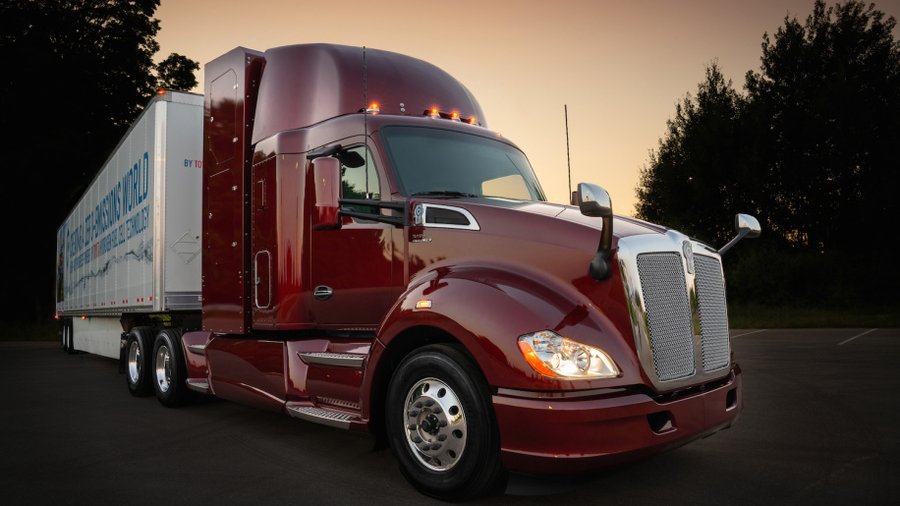Toyota unveils next iteration of fuel-cell semi truck

Toyota has unveiled the second iteration of its hydrogen fuel-cell Class 8 truck, showing off a zero-emission semi that boasts an increased driving range of more than 300 miles per fill at an industry event in Northern Michigan.
Known internally at Toyota as "Beta," the fuel-cell rig improves upon its predecessor, the proof-of-concept Project Portal "Alpha" truck, which has logged nearly 10,000 miles of testing and drayage operation at the Ports of Long Beach and Los Angeles since beginning operation in April 2017. That truck boasts a driving range of more than 200 miles per fill, 670-plus horsepower and 1,325 pound-feet of torque, enough to haul up to 80,000 pounds.
The new Beta truck maintains the same power and weight capacity figures but adds a sleeper cab and fuel cabinet combination that increases cab space without increasing the wheelbase. It also improves other, unspecified performance metrics. The trucks are powered by two Mirai fuel cell stacks and a 12-kilowatt-hour battery.
"By evaluating the first truck in our test facilities and on the actual roads in the L.A. area, we made a list of improvements for the Beta truck build process and performance enhancements," Andrew Lund, chief engineer on the project, said in a release. "We needed to move beyond a proof of concept, which the first truck accomplished, to something that is not only better than the original but is also more commercially viable."
The Beta rig is the latest sign of Toyota's nearly singular commitment to hydrogen and fuel cells as an automotive powertrain of the future. Despite challenges in sourcing the element and a lack of fueling infrastructure, it's betting on hydrogen even as most of the rest of the industry doubles down on developing electric vehicle technology as a future clean-power source.
Toyota is working on improvements for its next-generation Mirai fuel-cell vehicle, expected early in the 2020s, and plans to introduce FCV models including SUVs, pickups and commercial trucks. It's reportedly also developed prototype fuel-cell versions of small delivery vehicles. "We're going to shift from limited production to mass production, reduce the amount of expensive materials like platinum used in FCV components, and make the system more compact and powerful," Yoshikazu Tanaka, the Mirai's chief engineer, recently told Reuters. Among changes to the Mirai, Toyota wants to extend driving range from 310 miles to as much as 466 miles, and 620 miles by 2025.
Toyota last fall announced plans for construction of a commercial-scale hydrogen power plant and an on-site hydrogen fueling station at the Port of Long Beach. It's projected to come online in 2020.
Related News
